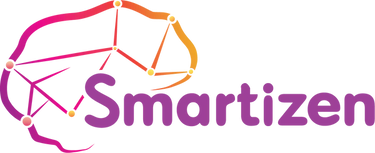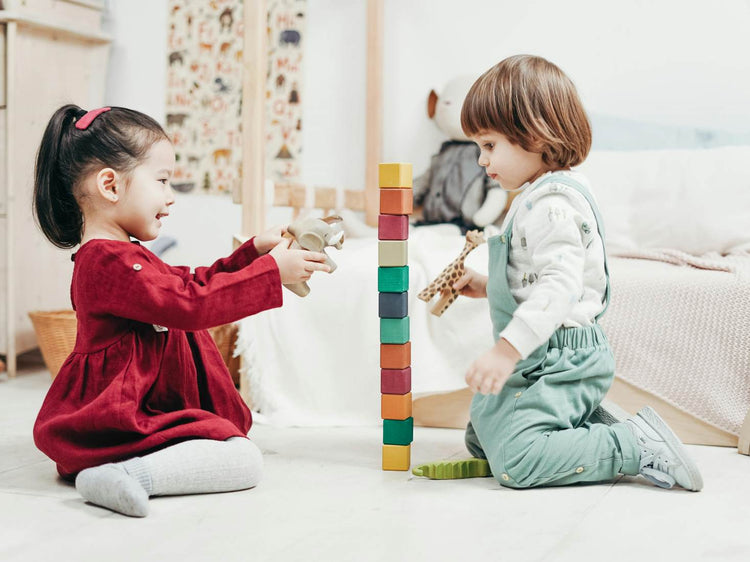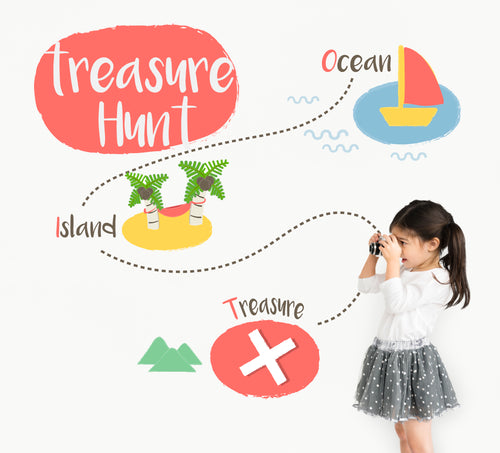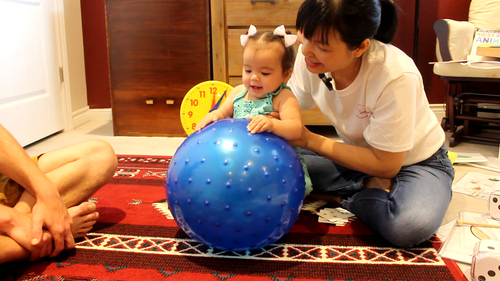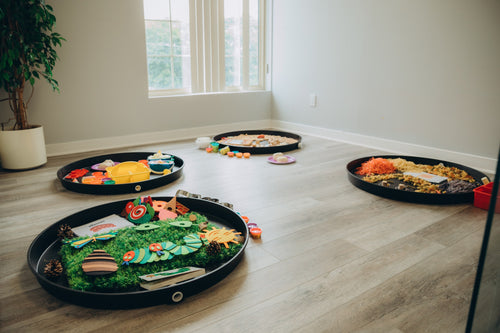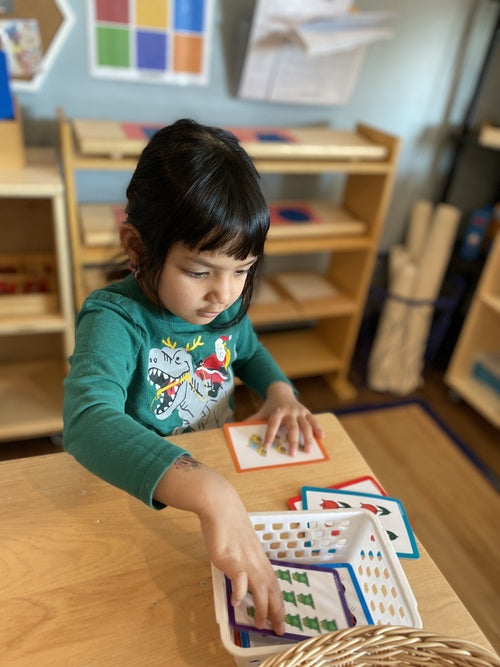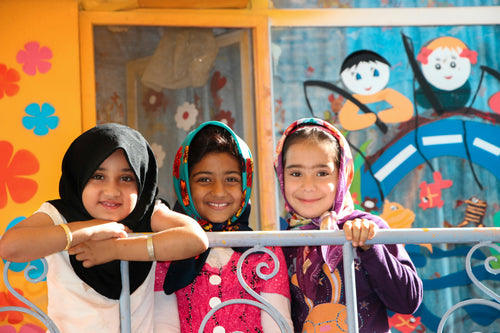As your toddler grows, their physical, cognitive, and emotional development takes leaps and bounds, surprising you with new abilities almost every day. Tracking toddler growth milestones is a valuable way to understand your child’s progress and ensure that they are developing in a healthy, balanced manner. In this guide, we’ll walk you through the major milestones your child will reach during toddlerhood and help you learn how to support them through this exciting stage of life.
What Are Toddler Growth Milestones?
Toddler growth milestones are key developmental stages that help parents and caregivers gauge whether their child is progressing appropriately. These milestones cover several important areas of development, including physical, cognitive, social, and emotional growth.
While every child is unique and develops at their own pace, these milestones offer a general framework for understanding the expected range of behaviors and abilities during toddlerhood. Monitoring these milestones allows you to detect any potential developmental delays and celebrate the many achievements your child will reach.
Key milestone categories include:
- Physical Development: Gross motor skills like walking, running, and jumping, as well as fine motor skills like grasping and drawing.
- Cognitive Development: Problem-solving abilities, memory, language acquisition, and basic reasoning.
- Social and Emotional Development: The capacity to form relationships, express emotions, and develop a sense of independence.
By tracking toddler growth milestones, parents can better support their child’s overall development, ensuring that they grow up healthy and well-rounded.
See remarkable infant growth milestones here.
Physical Development Milestones
Physical milestones reflect your toddler’s growing strength, balance, and coordination. Here are some of the key physical milestones to expect:
12 to 18 Months:
- Walking Independently: Most toddlers begin walking by 12 to 18 months, gaining more confidence and balance as they explore their surroundings.
- Grasping and Manipulating Objects: Your child may start using their fingers to grasp small objects, improving fine motor skills.
- Climbing: Many toddlers develop the ability to climb stairs or furniture by 18 months.
18 to 24 Months:
- Running and Jumping: Around this age, toddlers usually start running and may attempt to jump, even if they are still learning to keep their balance.
- Using Utensils: Some toddlers begin feeding themselves with a spoon or fork, which helps develop coordination.
- Kicking and Throwing: You’ll notice your toddler becoming more skilled at kicking a ball or throwing objects.
24 to 36 Months:
- More Complex Motor Skills: As toddlers approach age 3, they become more adept at climbing, running, and balancing on one foot.
- Self-Dressing: By this stage, many toddlers start attempting to dress themselves, showing their growing independence.
- Toilet Training: Around 2-3 years old, toddlers often show readiness for toilet training, a major milestone in independence.
Cognitive Development Milestones
Cognitive development involves how toddlers think, learn, and understand the world. Tracking cognitive milestones can give you insight into your child's learning process and problem-solving abilities.
12 to 18 Months:
- Object Permanence: Toddlers begin to understand that objects still exist even when they are out of sight, marking a significant cognitive leap.
- Imitation and Exploration: During this period, toddlers mimic adults’ behaviors, such as pretending to talk on the phone, and experiment with cause and effect by dropping toys or pushing buttons.
18 to 24 Months:
- Problem-Solving Skills: Toddlers begin figuring out how to solve simple problems, such as fitting shapes into matching holes or assembling basic puzzles.
- Pretend Play: Imaginative play becomes more common, as toddlers start engaging in activities like pretending to cook or care for a doll.
- Understanding Simple Instructions: Your toddler will likely start understanding and following simple directions, like “pick up your toy.”
24 to 36 Months:
- Rapid Language Development: By age 2 to 3, toddlers experience a language boom, expanding their vocabulary and beginning to form short sentences.
- Memory and Recall: Toddlers start remembering more details about people, places, and routines, strengthening their ability to understand their environment.
- Increased Focus: They become more capable of concentrating on tasks for extended periods, allowing for more complex play and learning.
Social and Emotional Development Milestones
Social and emotional development is a crucial part of toddler growth milestones. It helps toddlers build relationships, regulate emotions, and express themselves.
12 to 18 Months:
- Separation Anxiety: It’s common for toddlers to experience separation anxiety, reflecting their attachment to parents and caregivers.
- Parallel Play: While toddlers may not engage directly with other children, they enjoy playing alongside them, learning by observing.
18 to 24 Months:
- Showing Independence: As they approach age 2, toddlers often insist on doing things themselves, such as feeding or dressing, highlighting their desire for independence.
- Emotion Recognition: Toddlers begin recognizing and reacting to the emotions of others, though they may still struggle with emotional regulation.
24 to 36 Months:
- Empathy and Cooperation: By the age of 3, many toddlers start showing empathy, comforting others, and sharing during play.
- Forming Friendships: Toddlers may begin forming simple friendships with peers and enjoy group play activities.
- Tantrums and Emotional Regulation: As toddlers learn to express their emotions, tantrums may occur. Over time, they develop better emotional control.
Supporting Toddler Growth Milestones
As a parent, there are many ways you can support your toddler's development during this critical time. Here are a few tips:
- Encourage Active Play: Provide plenty of opportunities for your toddler to move, climb, and explore. Active play helps with physical development and improves coordination.
- Read and Talk Together: Reading books and having conversations are key to fostering language development. Ask open-ended questions and encourage your toddler to use their growing vocabulary.
- Provide Social Experiences: Arrange playdates or take your child to playgroups where they can interact with other toddlers. This helps them practice sharing, turn-taking, and empathy.
- Be Patient with Independence: Encourage your toddler’s efforts to do things independently, even if it takes a little longer. This fosters confidence and self-esteem.
Download right brain training free printable flashcards for your children here.
When to Seek Guidance
While every child grows at their own pace, there are certain signs that may indicate a delay in toddler growth milestones. If your child is not walking by 18 months, speaking simple words by 24 months, or showing interest in social interaction, it may be time to consult your pediatrician.
It’s also important to trust your instincts as a parent. If you have concerns about your child’s development, early intervention can be highly beneficial.
Join our Facebook comunity to discuss more about children development here.
Smartizen Whole-Brain Training Program: Enhancing Your Child’s Development
If you’re looking for ways to further support your toddler's growth milestones, consider Smartizen’s Whole-Brain Training Program. Designed to tap into your child’s full cognitive potential, our program utilizes both Glen Domann and Montessori methods to create a holistic learning environment. At Smartizen, we focus on engaging both the left and right sides of the brain, promoting creativity, critical thinking, and problem-solving skills from an early age.
Our whole-brain training program includes a variety of activities that not only enhance your child’s cognitive development but also foster emotional resilience and social skills. By integrating learning into fun, interactive experiences, Smartizen helps children reach and exceed their toddler growth milestones.
Tracking toddler growth milestones is an essential part of ensuring your child’s healthy development. From learning to walk to forming friendships, each milestone marks a new stage in your toddler’s journey. By staying informed and providing the right support, you can guide your child through these important phases.
And remember, if you want to unlock your child’s full potential, Smartizen’s Whole-Brain Training Program is here to help. Let’s nurture your toddler’s development together, preparing them for success in both school and life. Book a free trial class with us here to experience whole-brain training method.
